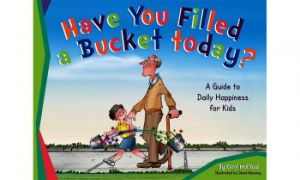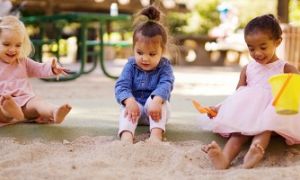

The Diploma of Early Childhood Education and Care gives you an opportunity to explore more career options. From creative resource design to inclusion support, leadership, or advocacy, it offers a rich landscape of opportunities beyond the traditional role of working as an educator in an early learning setting. The following article provides examples of different career pathways for your Diploma qualification.
The Australian Skills Quality Authority, in collaboration with HumanAbility and sector partners, has released updated guidance to strengthen how early childhood education and care students are assessed during workplace placements. This article unpacks the key elements of the guidance, highlights unacceptable practices, and offers best-practice recommendations for registered training organisations and ECEC services.
In New South Wales, a disturbing trend is emerging: early childhood education students are paying thousands of dollars for contract cheating services—outsourcing assignments to third parties, often via encrypted platforms like WhatsApp. Some are reportedly using these fraudulent qualifications to fast-track visa approvals and bypass the very training meant to prepare them to support, nurture, and educate our youngest citizens.
When a qualification is cancelled by the Australian Skills Quality Authority (ASQA), it sets off a chain of consequences for educators, employers, and the broader vocational education sector. Here's a breakdown of what happens. The following article provides information on What Triggers Cancellation?, Students Working With Cancelled Qualification. Notification Process, Consequences for Students, FAQs for Cancelled VET Qualifications and more.
Here are some effective study planning techniques and tools to support students in staying organized and productive. This article provides information on Study Planning Techniques, Study Planning Tools, How To Manage Multiple Modules In A Cluster, Week By Week Study Plan, Daily Study Schedule Example, Weekly Study Breakdown Example, Study Tips While At Work and more.
A: A jotting observation is a concise and informal way to document significant events, behaviors, or interactions. These observations are typically brief, focusing on specific moments rather than a sequence of events. They provide a snapshot of a child's interests, development, or skills and can be recorded in various formats, such as notebooks or post-it notes.
There are a significant number of educators undertaking study to gain formal qualifications. There is also a need for educators in the early childhood workforce, who are undertaking study, to feel supported to strive to achieve their career goals and remain in the workforce. Leading Learning Circles for Educators Engaged in Study is designed to assist pedagogical leaders in supporting educators in their service who are undertaking study. The following article provides information on What Is Leading Learning Circles for Educators Engaged in Study, How Does This Helps Educators Who Are Studying, How To Get Started, Roadmap To Get Started, Reflective Questions, Examples Of Connecting Theory To Practice and Leading Learning Circles for Educators Engaged in Study Resource.
Attachment theory is a key concept in developmental psychology that examines the importance of early relationships between children and their Educators.The following article provides information on What Is Attachment Theory, Key Aspects of Attachment Theory, Significance of Strong, Secure Attachments, Practical Strategies For Attachment Theory, How Lack Of Attachment Can Impact On Development and more.
The Australian 24-Hour Movement Guidelines for the Early Years provide comprehensive recommendations for physical activity, sedentary behavior, and sleep for children from birth to 5 years. The following article provides information About The Australian 24-Hour Movement Guidelines for the Early Years, Key Recommendations, and more.
 Here is the list of the EYLF Learning Outcomes that you can use as a guide or reference for your documentation and planning. The EYLF… Read More
Here is the list of the EYLF Learning Outcomes that you can use as a guide or reference for your documentation and planning. The EYLF… Read More
 The EYLF is a guide which consists of Principles, Practices and 5 main Learning Outcomes along with each of their sub outcomes, based on identity,… Read More
The EYLF is a guide which consists of Principles, Practices and 5 main Learning Outcomes along with each of their sub outcomes, based on identity,… Read More
 This is a guide on How to Write a Learning Story. It provides information on What Is A Learning Story, Writing A Learning Story, Sample… Read More
This is a guide on How to Write a Learning Story. It provides information on What Is A Learning Story, Writing A Learning Story, Sample… Read More
 One of the most important types of documentation methods that educators needs to be familiar with are “observations”. Observations are crucial for all early childhood… Read More
One of the most important types of documentation methods that educators needs to be familiar with are “observations”. Observations are crucial for all early childhood… Read More
 To support children achieve learning outcomes from the EYLF Framework, the following list gives educators examples of how to promote children's learning in each individual… Read More
To support children achieve learning outcomes from the EYLF Framework, the following list gives educators examples of how to promote children's learning in each individual… Read More
 Reflective practice is learning from everyday situations and issues and concerns that arise which form part of our daily routine while working in an early… Read More
Reflective practice is learning from everyday situations and issues and concerns that arise which form part of our daily routine while working in an early… Read More
 Within Australia, Programming and Planning is reflected and supported by the Early Years Learning Framework. Educators within early childhood settings, use the EYLF to guide… Read More
Within Australia, Programming and Planning is reflected and supported by the Early Years Learning Framework. Educators within early childhood settings, use the EYLF to guide… Read More
 When observing children, it's important that we use a range of different observation methods from running records, learning stories to photographs and work samples. Using… Read More
When observing children, it's important that we use a range of different observation methods from running records, learning stories to photographs and work samples. Using… Read More
 This is a guide for educators on what to observe under each sub learning outcome from the EYLF Framework, when a child is engaged in… Read More
This is a guide for educators on what to observe under each sub learning outcome from the EYLF Framework, when a child is engaged in… Read More
 The Early Years Learning Framework describes the curriculum as “all the interactions, experiences, activities, routines and events, planned and unplanned, that occur in an environment… Read More
The Early Years Learning Framework describes the curriculum as “all the interactions, experiences, activities, routines and events, planned and unplanned, that occur in an environment… Read More

Have You Filled A Bucket Today is a free story that children can download and...
See more...
When children move into early childhood settings they broaden their experiences as participants in different...
See more...
Here’s a thoughtful set of critical reflection questions you can use to evaluate and enrich...
See more...© 2009-2025 Aussie Childcare Network Pty Ltd. All Rights Reserved.
